by urban-acupuncture | Feb 1, 2021 | Acupuncture, Massage Therapy
What is Arthritis?
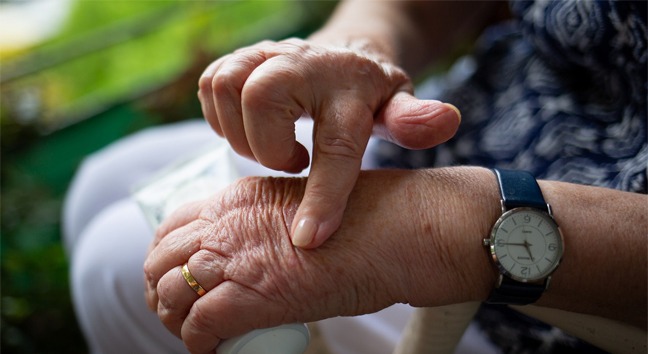 Arthritis is a general term for a variety of diseases relating to the health of the joints.
Arthritis is a general term for a variety of diseases relating to the health of the joints.
While the underlying causes of arthritis are often very different, depending on the specific disease, the symptoms are often quite similar. The most common symptoms of arthritis are joint pain, swelling and inflammation, stiffness, and decreased range of motion.
Most forms of arthritis are degenerative. Symptoms may alternate between mild and severe at any given time. But in general, they will continue to get worse. In many cases, arthritis leads to permanent joint damage.
Severe arthritis can be extremely debilitating. It is, in fact, the leading cause of disability in the United States today.
There are more than 100 different types of arthritis. The two most common are osteoarthritis and rheumatoid arthritis. While the symptoms may be similar, the causes of these two common diseases are very different.
- Osteoarthritis involves the gradual decay of the cartilage that cushions the ends of the bone. As the cartilage becomes damaged, the bones begin to grind against each other with every movement of the joint. The joint lining can become inflamed. Osteoarthritis can lead to deterioration of the connective tissues holding the bones and muscles together, and can even lead to changes in the bone itself.
- Rheumatoid arthritis is an autoimmune disease. The body’s own immune system begins to attack the synovial membrane, a tough membrane encapsulating the parts of the joint. As a result, the synovial membrane becomes inflamed and swollen. Eventually, the disease begins to cause damage to the cartilage and bone at the joint.
While there is no cure for either osteoarthritis or rheumatoid arthritis, acupuncture and massage therapy can play an important role in both pain management and managing symptoms such as swelling and inflammation. They can also help maintain mobility and range of motion.
How Does Massage Therapy Help Arthritis?
When incorporated into a comprehensive treatment plan for arthritis, the goal of massage therapy is to reduce pain and inflammation, as well as increase blood flow, to affected joints.
Moreover, by reducing inflammation and swelling and releasing muscles near affected joints, massage can help maintain range of motion and improve mobility.
And massage therapy contributes to pain reduction and overall health by improving sleep patterns and boosting energy levels.
How Does Acupuncture Help Arthritis?
Like massage therapy, acupuncture also helps manage the symptoms of arthritis by reducing pain and targeting areas of inflammation.
Acupuncture involves the use of very small, sterile needles placed in specific points along the body’s lines of energy called meridians.
By restoring the proper flow of energy (known in traditional Chinese medicine as “qi”) and fluids around the body, acupuncture can help fight swelling and inflammation at affected joints. Acupuncture can also be highly effective in reducing sensations of pain and discomfort related to different types of arthritis.
Can Massage Therapy and Acupuncture Be Combined to Treat Arthritis?
Both massage therapy and acupuncture are powerful stand-alone techniques. When performed by a licensed and experienced therapist, they can both play an important role in managing the symptoms of arthritis.
When combined into a single treatment, they actually augment the anti-inflammatory and pain reducing impact of each. They also have been shown to have a cumulative impact; in other words, they work better when performed regularly, as part of a holistic and comprehensive treatment plan.
If you are suffering from the symptoms of arthritis, acupuncture and massage therapy may be able to help provide relief. Be sure to your primary care physician and other medical specialists about whether acupuncture and massage might play a role in your arthritis treatment.
Contact Urban Acupuncture Center in Columbus, OH For More Information
For more information about how acupuncture, massage therapy and other alternative healing treatments can help you, please contact the Urban Acupuncture Center Board Certified Licensed Acupuncturist’s team at Indianola Ave, Clintonville (614) 725-2488 | Main St, Westerville (614) 426-4406 or click here. Taking new patients in and around greater Columbus, Ohio.
by urban-acupuncture | Dec 14, 2020 | Acupuncture, Massage
Virtual Acupressure Treatment
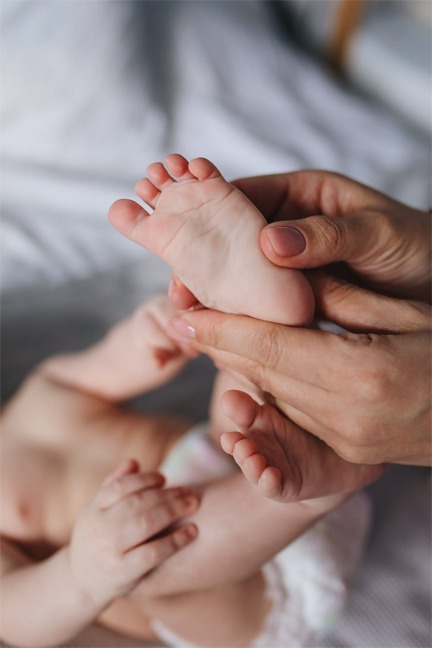 Balance is at the heart of your health and wellness. If your vital life energy, or qi, flows naturally and freely along your body’s meridians, your body is in balance and better able to resist illness and heal itself. When your qi becomes blocked, and doesn’t flow freely through the meridians, your body is out of balance, more susceptible to illness, and less capable of self-healing from disease and injury.
Balance is at the heart of your health and wellness. If your vital life energy, or qi, flows naturally and freely along your body’s meridians, your body is in balance and better able to resist illness and heal itself. When your qi becomes blocked, and doesn’t flow freely through the meridians, your body is out of balance, more susceptible to illness, and less capable of self-healing from disease and injury.
The goal of acupuncture and acupressure is to restore the flow of qi through the meridians and bring the body back into balance by stimulating specific points along the meridians. Acupressure utilizes very fine, sterile needles to stimulate those points. However, they can also be stimulated by pressure. This technique is called acupressure.
If you feel out of balance and in need of relaxation, but are either unable to visit our office or feel uncomfortable receiving in-office treatments during this time, self-applied acupressure can help!
Urban Acupuncture Center is now offering Telehealth for Acupressure. Using our safe and easy online portal, doxy.me, you can speak directly with a licensed acupuncturist who will guide you through a comfortable and effective acupressure self-massage routine designed to address your specific and unique health concerns.
Does Acupressure Self-Massage Really Work?
Yes, self-massage at specific acupressure points along the body’s meridians really does work to relax the muscles and bring the body back into balance!
During your telehealth consultation, our specialists will identify the correct acupressure points to massage and teach you the basic principles of acupuncture. Some tips to remember include:
- Be sure you are comfortable and relaxed before beginning self-massage. Closing your eyes and breathing slowly and deeply can help the effectiveness of the massage.
- Identify the specific acupressure point or points to massage, then use firm, deep pressure to stimulate that point.
- Stimulate that point for several minutes at a time by firmly moving your finger in a rotating or up-and-down movement across the acupressure point.
Your acupuncturist may also teach you specific breathing techniques and calming exercises to augment the effectiveness of the self-massage.
Acupressure is safe and can be repeated as often as you want throughout the day, as long as it is comfortable and does not cause pain. If you would benefit from acupressure in a hard-to-reach spot, a family member or close friend can perform the massage on you as well.
What to Expect from your Telehealth Consultation
Taking advantage of our Telehealth for Acupressure service is simple and easy.
The first step is to make an appointment for your consultation with one of our licensed specialists.
To utilize our telehealth platform—doxy.me—you will need a tablet, phone, computer, or other electronic device with an internet connection, camera, and microphone.
To check in before your appointment, simply follow these easy steps:
- Start your device and test out the microphone and camera and microphone to be sure they are working correctly.
- Enter the Urban Acupuncture Center doxy.me web address into your internet browser.
- When asked “Would you like to share camera and microphone with doxy.me?”, click “Allow”.
- Type your name where required and click “Check In”.
- Once your telehealth visit starts, you will be able to see and hear your practitioner quite normally.
During your telehealth acupressure consultation, your acupuncturist will ask questions about your overall health and specific concerns. After working with you to develop a customized acupressure plan, your acupuncturist will demonstrate and guide you through the proper acupressure techniques.
You should feel comfortable and safe discussing your health and concerns with your acupuncturists. And you should feel free to ask questions yourself! Acupressure self-massage will only work if you fully understand the techniques to use, so if you are unsure, ask! The more questions you ask, the more you will be able to ensure that you achieve your acupressure goals.
Contact Urban Acupuncture Center in Columbus, OH For More Information
For more information about how acupuncture, massage therapy and other alternative healing treatments can help you, please contact the Urban Acupuncture Center Board Certified Licensed Acupuncturist’s team at Indianola Ave, Clintonville (614) 725-2488 | Main St, Westerville (614) 426-4406 or click here. Taking new patients in and around greater Columbus, Ohio.
by urban-acupuncture | Oct 12, 2020 | Acupuncture, Massage Therapy
Acupuncture and Massage Treatments
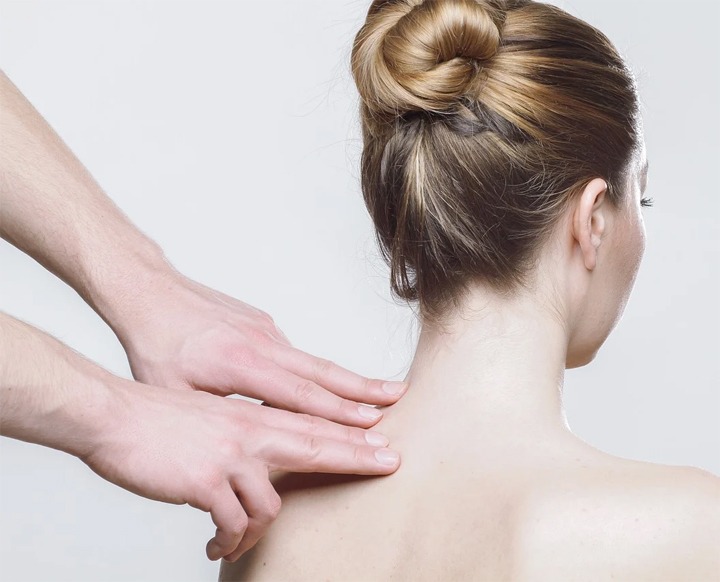 If there was one word that could describe today’s world, many of us would chose “stressful.” And stress takes both a physical and emotional toll on our fragile bodies. Luckily, treatment options such as massage and acupuncture can help address chronic and acute aches and pains caused by stress, illness, and injury.
If there was one word that could describe today’s world, many of us would chose “stressful.” And stress takes both a physical and emotional toll on our fragile bodies. Luckily, treatment options such as massage and acupuncture can help address chronic and acute aches and pains caused by stress, illness, and injury.
By realigning the body’s chi (qi) (vital life force) into proper balance, acupuncture promotes our natural ability to address and heal—at a systemic level—issues stemming from stress, chronic conditions, and even acute injury.
Massage therapy targets the muscles, tissues, and fascia of the musculoskeletal system to alleviate pain, discomfort, soreness, and inflexibility, as well as reduce stress and improve sleep.
Both are powerful stand-alone techniques when performed by a licensed and experienced therapist. However, massage and acupuncture are also complementary; when performed together, they can actually augment the results of each type of treatment.
Here are five reasons why you should consider a combination treatment with both acupuncture and massage:
Improves circulation and blood flow
As our blood flows through every part of our body, it brings life-giving oxygen and nutrients to our cells, while carrying away harmful waste and toxins. Improving circulation and blood flow both in general and in specific areas of the body with both massage and acupuncture simultaneously can promote the body’s natural self-healing processes.
Boosts the immune system
One of acupuncture’s most important benefits is its ability to help boost the immune system, which enables the body to fight off germs such as viruses and bacteria. Massage reduces stress, promotes relaxation, and improves sleep, so the body can focus on fighting off disease and illness. Together, these two treatments can amplify the immune-boosting effects of each one.
Helps manage acute and chronic pain
Both acupuncture and massage can be used to target areas of pain and discomfort, whether stemming from an acute injury or from a chronic condition. Improving blood flow to injured areas and boosting the body’s natural immune system, as noted above, are of great benefit when it comes to reducing pain. Acupuncture and massage can also help break up painful scar tissue and promote muscle relaxation for powerful relief.
Reduces stress
Relaxation and stress reduction are perhaps the most well-known benefits of both massage and acupuncture. Using both massage and acupuncture together to address the physical symptoms of stress can help you sleep better, reduce the occurrence of stress headaches, give you more energy, and overall help you feel better.
Promotes overall well-being
Most importantly, massage and acupuncture together can promote a lasting sense of overall well-being.
By enhancing circulation and proper energy flow, helping the body’s self-healing mechanisms, and minimizing feelings of stress and tension, a combined massage and acupuncture treatment will leave you feeling calmer and more centered. Helping you release negative energy enables more room for the positive energy you need to enjoy life to its fullest.
Contact Urban Acupuncture Center in Columbus, OH For More Information
For more information about how acupuncture, massage therapy and other alternative healing treatments can help you, please contact the Urban Acupuncture Center Board Certified Licensed Acupuncturist’s team at Indianola Ave, Clintonville (614) 725-2488 | Main St, Westerville (614) 426-4406 or click here. Taking new patients in and around greater Columbus, Ohio.
by urban-acupuncture | Oct 1, 2020 | Acupuncture
IVF Preparation
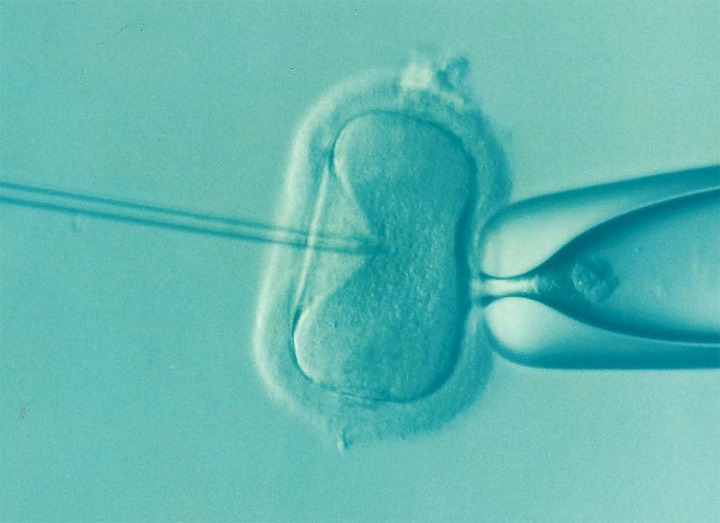 For everyone who has dreamed of becoming a parent, getting pregnant always seemed like it would be the easy part of parenting. Unfortunately, infertility is far more common than most people realize. According to the CDC (Centers for Disease Control and Prevention), nearly 12% of women will struggle with fertility issues at some point in their lives.
For everyone who has dreamed of becoming a parent, getting pregnant always seemed like it would be the easy part of parenting. Unfortunately, infertility is far more common than most people realize. According to the CDC (Centers for Disease Control and Prevention), nearly 12% of women will struggle with fertility issues at some point in their lives.
Modern medicine can help some couples achieve a successful pregnancy. In vitro fertilization (IVF), for example, involves fertilizing a woman’s eggs outside of the body and then placing the fertilized eggs back into the uterus. Pregnancy occurs when one or more of the eggs successfully embeds itself into the uterine wall to begin its natural growth. IVF is an invasive process that can take several months to complete a single cycle. Multiple cycles may be required, putting significant stress on both the body and the mind.
For some women, incorporating acupuncture into the IVF cycle can potentially improve the chances for achieving a successful pregnancy. When performed by a licensed and experienced acupuncture therapist, acupuncture can help prepare your body to promote ovulation and successful implantation. And acupuncture can help improve your overall health and wellbeing as well by reducing stress and correcting natural imbalances. If you are considering IVF, speak to your fertility specialist about whether acupuncture could help increase your chances of a successful fertility treatment.
How Can Acupuncture Help Your IVF Treatment?
Acupuncture can help improve the chances of a successful IVF treatment in two ways.
First, acupuncture has been shown to improve circulation. When incorporated into an IVF cycle, it can increase blood flow specifically to the reproductive organs. Proper blood flow to the ovaries can promote ovulation of healthy eggs. Improved blood flow to the uterus can help prepare the uterine lining which is critical for successful implantation of fertilized eggs. Moreover, by promoting healthy circulation, acupuncture can help ensure the proper flow of nutrition, anti-oxidants, and hormones throughout the reproductive cycle.
Second, acupuncture promotes overall wellness which can also play a role in successful IVF cycles. By addressing and correcting imbalances throughout the body, acupuncture can improve digestive function and reduce inflammation. And by promoting relaxation and restoring balance, acupuncture helps to reduce stress and improve sleep, enabling both your body and your mind to cope better with the physical and emotional stress that comes along with infertility and IVF.
When to Schedule Acupuncture during an IVF Cycle
Before starting acupuncture, taking any medication including herbal remedies, or starting any medical procedure, it is critical that you speak with your fertility specialist to ensure that supplemental treatments promote, and do not adversely impact, your IVF treatment.
There are several steps during your IVF cycle at which it may be appropriate to incorporate acupuncture.
- Three to six months in advance: Acupuncture treatments before your IVF treatment can help promote healthy blood flow to the ovaries and eggs. It also promotes general health to improve your natural balance and build up reserves to prepare the body for the IVF treatment.
- Priming Phase: Weekly acupuncture may be appropriate during the month before your IVF treatment. As you begin the medications necessary to suppress the ovaries in preparation for stimulation, acupuncture will continue to promote healthy blood flow to the ovaries.
- Stimulation Phase: Weekly or even twice weekly acupuncture can promote healthy egg growth as ovulation is stimulated. Because this phase can vary in length, it is important to monitor and alter the acupuncture treatments as necessary.
- Retrieval: Most acupuncture therapists will recommend a treatment 1 to 2 days before the eggs are retrieved. Acupuncture at this point in the cycle can help the eggs grow to full maturity to ensure that they are at the correct stage and size for retrieval.
- After Retrieval: One acupuncture treatment between retrieval and embryo transfer can help relax the uterus and increase circulation to the uterine lining, as well as help relieve discomfort from cramping or other side effects of retrieval.
- After Embryo Transfer: One or two acupuncture treatments immediately after the transfer of the fertilized egg, or embryo, into the uterus can improve the chances for a successful pregnancy. One treatment can be performed that same day or on the following day, with another treatment scheduled three or four days later. Weekly acupuncture throughout the first trimester can help support and promote a continued healthy pregnancy.
Coping with infertility is difficult, and IVF can put added stress on both the body and the mind. Talk to your fertility specialist and acupuncture therapist today to see if incorporating acupuncture into your IVF treatment cycle could help promote the chances that your IVF treatment will result in a successful, healthy pregnancy.
Contact Urban Acupuncture Center in Columbus, OH For More Information
For more information about how acupuncture, massage therapy and other alternative healing treatments can help you, please contact the Urban Acupuncture Center Board Certified Licensed Acupuncturist’s team at Indianola Ave, Clintonville (614) 725-2488 | Main St, Westerville (614) 426-4406 or click here. Taking new patients in and around greater Columbus, Ohio.
by urban-acupuncture | Sep 3, 2020 | Acupuncture
Acupuncture Could Help Treat Your Hay Fever (Rhinitis) Symptoms
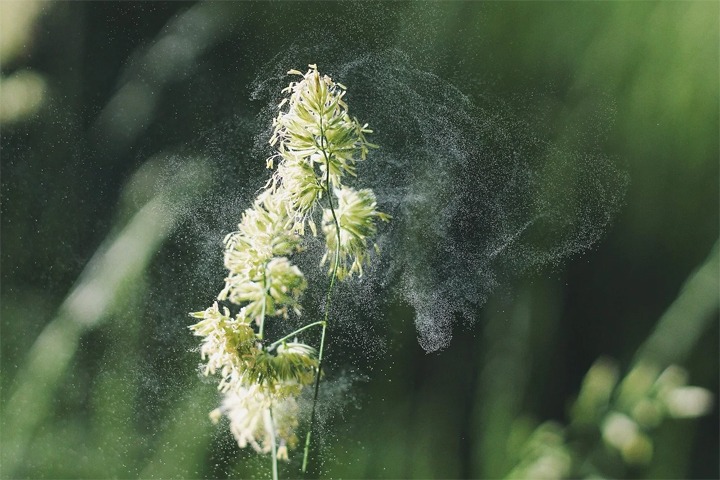 If you suffer from hay fever, you know just how miserable it can make you feel. Depending on the time of year and the severity of your symptoms, hay fever can even impact your performance at work or at school. Sometimes just getting through a normal day can feel like a challenge.
If you suffer from hay fever, you know just how miserable it can make you feel. Depending on the time of year and the severity of your symptoms, hay fever can even impact your performance at work or at school. Sometimes just getting through a normal day can feel like a challenge.
Hay fever is the common term for a medical condition known as allergic rhinitis. Simply put, it’s an allergic response to a trigger in the environment. Unfortunately, most hay fever triggers—like pollen—are unavoidable. Yet it is possible to control the symptoms. Conventional treatments for hay fever usually include antihistamines and nasal sprays.
Acupuncture, either as a stand-alone treatment or as a complement to medicinal treatments, can also provide both short-term relief from specific hay fever symptoms and longer-term treatment for the chronic, underlying conditions that may make you more susceptible to allergens in the environment. If you suffer from seasonal allergies and think acupuncture might offer you some relief, we encourage you to make an appointment with a licensed acupuncturist for a consultation.
Causes of Allergic Rhinitis (Hay Fever)
Allergic rhinitis is commonly called hay fever because it is usually associated with seasonal allergies. In other words, your body has an allergic response triggered by various types of pollen produced by trees, flowers, and grass. When you suffer from seasonal allergies depends in large part on where you live, the types of flora that grow in your region, and when they naturally produce triggers your body is allergic to.
The most common environmental triggers include:
- Tree pollen (early spring)
- Grass pollen (late spring and summer)
- Ragweed pollen (fall)
- Mold and fungi spores (can be either seasonal or perennial)
However, hay fever can also include indoor allergens such as:
- Dust mites
- Cockroaches
- Pet dander (dried particles of skin, saliva, and urine that become airborne)
Symptoms of Allergic Rhinitis (Hay Fever)
Allergic Rhinitis (hay fever or seasonal allergies) is easy to confuse with the common cold. Many of the symptoms are very similar, even if the underlying cause is very different: environmental allergy triggers for hay fever and a virus for the common cold. Common symptoms include:
- Nasal congestion (i.e. a “runny nose”)
- Post-nasal drip
- Sneezing
- Coughing
- Difficulty breathing or wheezing
- Itchy, watery, or red eyes
- Itchy nose and throat
- Swollen discoloration in the skin under the eyes
- Itchy skin or a rash
Allergic Rhinitis and Acupuncture
Acupuncture can help some patients find relief from seasonal allergies or hay fever in two ways.
First, acupuncture can help provide immediate relief from specific symptoms. For instance, stimulating acupuncture points around the nose and sinuses can help relieve nasal congestion and sneezing associated with seasonal allergies. Acupuncture points on the feet can be associated with itchy, watery eyes. And there are a variety of acupuncture points around the body that can help calm and soothe an immune system that has been sent into overdrive by the presence of allergens in the environment.
Second, acupuncture can offer some patients longer-term relief by stimulating the body’s natural defenses. Acupuncture is believed to help boost the immune system and help the body fight inflammation. Therefore, multiple acupuncture treatments in advance of allergy season can help your body develop a more appropriate—and less miserable—response to common environmental triggers.
If you suffer from seasonal allergies, and believe you might benefit from acupuncture, the first step is to make an appointment with a licensed and experienced acupuncturist. He or she can work with you—as well as with your allergist and primary care physician—to develop a comprehensive treatment plan. In some cases, this may involve multiple treatments over time, and scheduled at various times of the year to coincide with your specific hay fever triggers.
Contact Urban Acupuncture Center in Columbus, OH For More Information
For more information about how acupuncture, massage therapy and other alternative healing treatments can help you, please contact the Urban Acupuncture Center Board Certified Licensed Acupuncturist’s team at Indianola Ave, Clintonville (614) 725-2488 | Main St, Westerville (614) 426-4406 or click here. Taking new patients in and around greater Columbus, Ohio.
by urban-acupuncture | Aug 7, 2020 | Acupuncture
What is Asthma?
Asthma is a chronic form of lung disease that causes the airways inside the lungs to be inflamed or swollen, making it difficult to move air in and out of the lungs and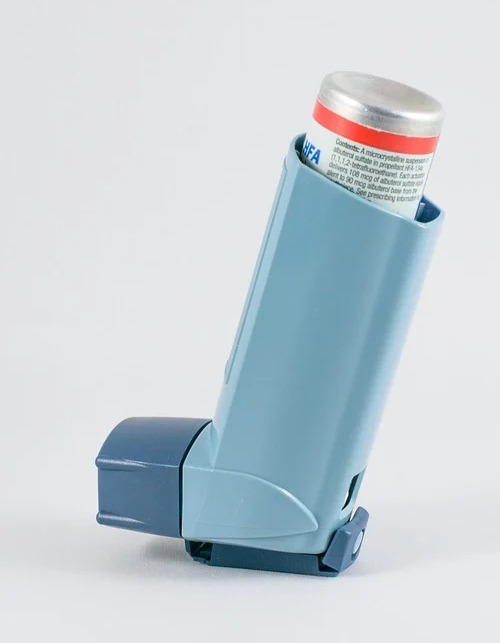 constricting breathing.
constricting breathing.
For asthma suffers, normal breathing that most of us take for granted can prove challenging. And at times, breathing in specific triggers in the environment can cause the airways to swell or inflame even more than normal. Breathing is further constricted by a build-up of mucus within the airways. In some cases, these triggers can even cause the muscles around the airways to constrict. These flare-ups, or asthma attacks, can be very serious and potentially life-threatening.
Common asthma triggers include airborne allergens such as pollen, pet dander (particles of skin and dried saliva), mold spores, or even cockroach waste, as well as occupational-related airborne triggers such as dust, certain gases, and chemical fumes. For individual suffering from exercise induced asthma, the airways become constricted as the individuals tries to take in greater quantities of air. Exercise induced asthma is often worse when triggered by cold or dry air.
Symptoms of asthma include:
- Difficulty breathing
- Shortness of breath
- Pain or tightness in the chest
- Wheezing when attempting to exhale
- Coughing or wheezing that gets worse during the flu or a cold
- Difficulty sleeping caused by breathing problems like coughing, wheezing, or shortness of breath
Can Acupuncture Improve Lung Function for Asthma Sufferers?
Asthma is a chronic condition that cannot be cured, but asthma symptoms can be controlled. The conventional treatment for asthma, depending on severity, is a combination of daily medication and the use of an inhaler to combat flare-ups or asthma attacks.
For some asthma sufferers, acupuncture has also proven to be an effective complement to these conventional treatments.
The key to acupuncture’s success in minimizing inflammation and thus controlling some asthma symptoms lies in its ability to spark the body’s natural self-healing mechanisms. Rooted in long-standing techniques based on Traditional Chinese Medicine, acupuncture stimulates specific points along the body’s energy lines, or meridians, to unblock the natural flow of the body’s vital life-energy, or chi.
By enabling the proper flow of chi, acupuncture can help bring the body back into natural alignment and restore homeostasis. Regular acupuncture treatments can help control asthma symptoms by reducing the inflammation of the airways, as well as improving blood flow and boosting the body’s natural immune system.
Acupuncture is not recommended as a stand-alone treatment for asthma, and will not replace fast-acting inhalers for sudden flare-ups or asthma attacks. Yet for some asthma suffers, acupuncture can work alongside conventional medications to improve asthma symptoms and even, for some patients, reduce the frequency of asthma flare-ups.
During your acupuncture treatment, a licensed acupuncturist will gently place very small, sterile needles at specific points along your body’s meridians. Each acupuncture treatment is customized to your unique needs, depending on the triggers and severity of your asthma. And while the main goal of acupuncture for asthma suffers is to reduce and help control asthma specific symptoms, most patients find it can also help improve overall wellness through enhanced relaxation and improved sleep patterns.
If you suffer from asthma and are wondering if acupuncture might help control your asthma symptoms, we encourage you to speak with your doctor about incorporating acupuncture into your treatment plan.
Contact Urban Acupuncture Center in Columbus, OH For More Information
For more information about how acupuncture, massage therapy and other alternative healing treatments can help you, please contact the Urban Acupuncture Center Board Certified Licensed Acupuncturist’s team at Indianola Ave, Clintonville (614) 725-2488 | Main St, Westerville (614) 426-4406 or click here. Taking new patients in and around greater Columbus, Ohio.
 Arthritis is a general term for a variety of diseases relating to the health of the joints.
Arthritis is a general term for a variety of diseases relating to the health of the joints.
 Balance is at the heart of your health and wellness. If your vital life energy, or qi, flows naturally and freely along your body’s meridians, your body is in balance and better able to resist illness and heal itself. When your qi becomes blocked, and doesn’t flow freely through the meridians, your body is out of balance, more susceptible to illness, and less capable of self-healing from disease and injury.
Balance is at the heart of your health and wellness. If your vital life energy, or qi, flows naturally and freely along your body’s meridians, your body is in balance and better able to resist illness and heal itself. When your qi becomes blocked, and doesn’t flow freely through the meridians, your body is out of balance, more susceptible to illness, and less capable of self-healing from disease and injury. If there was one word that could describe today’s world, many of us would chose “stressful.” And stress takes both a physical and emotional toll on our fragile bodies. Luckily, treatment options such as massage and acupuncture can help address chronic and acute aches and pains caused by stress, illness, and injury.
If there was one word that could describe today’s world, many of us would chose “stressful.” And stress takes both a physical and emotional toll on our fragile bodies. Luckily, treatment options such as massage and acupuncture can help address chronic and acute aches and pains caused by stress, illness, and injury. For everyone who has dreamed of becoming a parent, getting pregnant always seemed like it would be the easy part of parenting. Unfortunately, infertility is far more common than most people realize. According to the CDC (Centers for Disease Control and Prevention), nearly 12% of women will struggle with fertility issues at some point in their lives.
For everyone who has dreamed of becoming a parent, getting pregnant always seemed like it would be the easy part of parenting. Unfortunately, infertility is far more common than most people realize. According to the CDC (Centers for Disease Control and Prevention), nearly 12% of women will struggle with fertility issues at some point in their lives. If you suffer from hay fever, you know just how miserable it can make you feel. Depending on the time of year and the severity of your symptoms, hay fever can even impact your performance at work or at school. Sometimes just getting through a normal day can feel like a challenge.
If you suffer from hay fever, you know just how miserable it can make you feel. Depending on the time of year and the severity of your symptoms, hay fever can even impact your performance at work or at school. Sometimes just getting through a normal day can feel like a challenge.  constricting breathing.
constricting breathing.